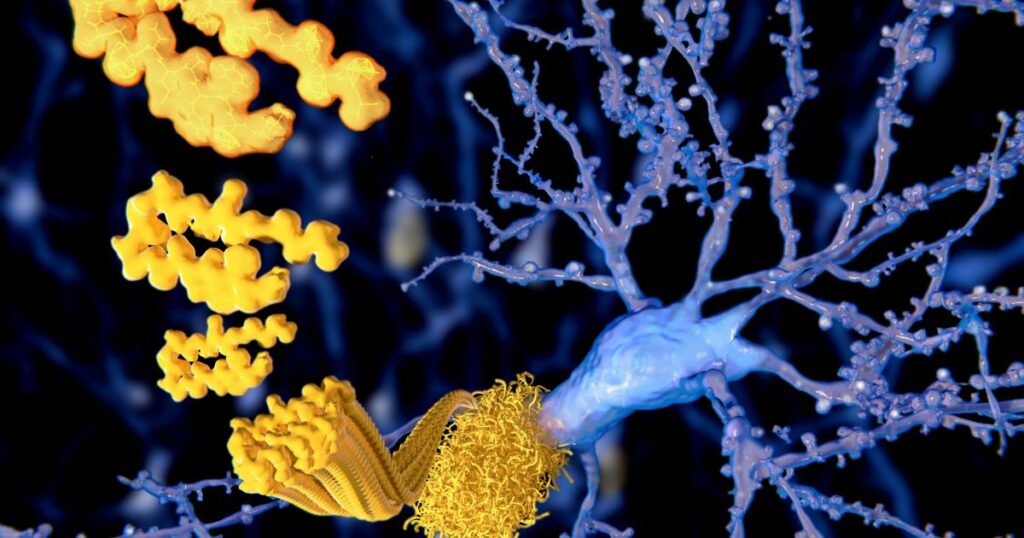Table of Contents
- Understanding Alzheimer’s Disease
- The Role of Cannabis in Alzheimer’s Prevention
- Benefits and Risks of Cannabis Use
- Current Legal and Regulatory Landscape
- Best Practices for Cannabis Use in Alzheimer’s Prevention
- Conclusion
- FAQs
Curious about cannabis for Alzheimer’s prevention? Research shows promising results for the use of cannabis in preventing Alzheimer’s disease. In this guide, we’ll delve into the intriguing mechanisms at play and uncover the truth as to whether cannabis really is effective at Alzheimer’s prevention. Get ready for a captivating exploration of the potential link between cannabis and safeguarding cognitive health.
Understanding Alzheimer’s Disease
Before we explore the potential of cannabis in preventing Alzheimer’s, let’s gain a comprehensive understanding of the disease itself. Alzheimer’s is characterized by the progressive deterioration of brain cells, resulting in memory loss, cognitive impairment, and behavioural changes. It is the most common form of dementia, accounting for a significant percentage of dementia cases worldwide.
While the exact causes of Alzheimer’s disease are not yet fully understood, researchers have identified several risk factors. Advanced age, genetic predisposition, family history, and certain lifestyle factors, such as poor cardiovascular health and chronic inflammation, have been implicated in increasing the likelihood of developing the condition.
Early detection and intervention play a crucial role in managing Alzheimer’s disease. Identifying the symptoms in the early stages allows for the implementation of strategies to slow down the progression of the disease and enhance the quality of life for affected individuals. However, the existing prevention approaches, such as lifestyle modifications and pharmacological interventions, have shown limited effectiveness, highlighting the need for innovative and alternative strategies.
The Role of Cannabis in Alzheimer’s Prevention
Cannabis, a plant with a rich history of medicinal use, has garnered attention for its potential role in preventing Alzheimer’s disease. This section explores the various aspects of cannabis and its active compounds, delves into the potential mechanisms through which it may prevent Alzheimer’s, examines relevant research findings, and addresses the current limitations and gaps in our understanding.
Overview of Cannabis and its Active Compounds
Cannabis, also known as marijuana, contains numerous chemical compounds known as cannabinoids. Two of the most well-known and studied cannabinoids are THC (tetrahydrocannabinol) and CBD (cannabidiol). THC is primarily responsible for the psychoactive effects of cannabis, while CBD is non-intoxicating and has been associated with various therapeutic properties.
Both THC and CBD interact with the endocannabinoid system in the human body. This complex system plays a crucial role in regulating various physiological processes, including mood, appetite, pain sensation, and cognition. The interaction between cannabinoids and the endocannabinoid system forms the foundation for understanding the potential preventive effects of cannabis on Alzheimer’s disease.
Potential Mechanisms of Cannabis in Alzheimer’s Prevention
Several potential mechanisms have been proposed to explain how cannabis may contribute to the prevention of Alzheimer’s disease. Firstly, cannabinoids have been shown to possess anti-inflammatory properties. Chronic inflammation in the brain is believed to play a significant role in the development and progression of Alzheimer’s. By reducing inflammation, cannabis may help protect brain cells and prevent the accumulation of amyloid plaques, a hallmark characteristic of Alzheimer’s.
Secondly, cannabinoids have demonstrated antioxidant effects. Oxidative stress, caused by an imbalance between the production of reactive oxygen species and the body’s ability to neutralize them, can lead to cellular damage and contribute to neurodegeneration. The antioxidant properties of cannabis may help counteract oxidative stress and protect brain cells from damage, potentially slowing down the progression of Alzheimer’s.
Furthermore, cannabinoids may influence the production and clearance of amyloid plaques. Studies on animal models have suggested that cannabis extracts can reduce the buildup of amyloid plaques in the brain. Amyloid plaques are composed of abnormal protein deposits and are closely associated with the degenerative processes observed in Alzheimer’s disease. By inhibiting the formation and promoting the clearance of these plaques, cannabis may help prevent or delay the onset of Alzheimer’s.
Research Findings and Current Limitations
Research exploring the relationship between cannabis and Alzheimer’s prevention is still in its early stages, and findings are limited and inconclusive. Most of the available evidence comes from preclinical studies conducted on animal models or in vitro experiments. While these studies provide valuable insights, the translation of findings to human subjects is complex and requires further investigation.
Some studies have shown promising results. For example, research on mice models genetically engineered to develop Alzheimer’s-like symptoms has demonstrated a reduction in amyloid plaques and improved cognitive function following cannabis treatment. However, it is essential to note that animal studies may not always accurately reflect the effects of cannabis in humans.
Clinical trials examining the effects of cannabis in Alzheimer’s prevention are scarce, and those that have been conducted are often small-scale or lack rigorous methodology. The long-term effects, optimal dosages, and potential interactions with other medications remain unclear. Additionally, the legality and availability of cannabis-based products vary across regions, posing challenges for conducting large-scale clinical trials.
Benefits and Risks of Cannabis Use
While cannabis holds potential benefits in Alzheimer’s prevention, it is essential to consider the associated risks and challenges. Some potential benefits of cannabis use for Alzheimer’s prevention include its anti-inflammatory and antioxidant properties, as well as its ability to influence amyloid plaque formation and clearance. These properties suggest that cannabis may have a protective effect on brain cells and cognitive function.
However, it is crucial to acknowledge the challenges and risks associated with cannabis use. One of the primary challenges is the legal and ethical considerations surrounding cannabis. The legal status of cannabis varies from country to country and even within different states or regions. In some places, cannabis is illegal for both recreational and medicinal use, while in others, it may be legal for medical purposes only. Individuals interested in using cannabis for Alzheimer’s prevention must navigate these legal complexities and ensure compliance with local regulations.
Another consideration is the potential side effects of cannabis use. While generally well-tolerated, cannabis can cause temporary cognitive impairments, dizziness, dry mouth, increased heart rate, and changes in mood. These effects may be more pronounced in older adults or individuals with underlying health conditions. Furthermore, cannabis use can have psychoactive effects due to the presence of THC, which may impact cognitive function and daily activities. It is important to be aware of these potential side effects and make informed decisions about cannabis use.
Additionally, cannabis can interact with other medications. Some compounds in cannabis, particularly CBD, can affect the metabolism of certain medications in the liver, potentially altering their effectiveness or increasing the risk of side effects. It is crucial to consult with healthcare professionals, including physicians and pharmacists, before incorporating cannabis into an Alzheimer’s prevention regimen, especially if the individual is taking other medications.
Consulting with healthcare professionals is paramount when considering the use of cannabis for Alzheimer’s prevention. They can provide personalized guidance, considering the individual’s medical history, current medications, and overall health status. Healthcare professionals can also help individuals navigate legal and ethical considerations, provide information on potential risks and benefits, and monitor their response to cannabis use.
Current Legal and Regulatory Landscape
The legal status of cannabis and its derivatives varies across different jurisdictions, making it essential to understand the legal and regulatory landscape before considering cannabis for Alzheimer’s prevention. While some countries and states have legalized cannabis for both medical and recreational use, others strictly prohibit its use. This section provides an overview of the legal status of cannabis, discusses variations in regulations, emphasizes the importance of staying informed, and mentions any ongoing debates or potential changes in the legal landscape.
Overview of the Legal Status of Cannabis
Cannabis laws and regulations have undergone significant changes in recent years. Some regions have recognized the medicinal potential of cannabis and have enacted legislation to allow its use for medical purposes. This has resulted in the emergence of medical cannabis programs that provide access to cannabis-based products under specific conditions and regulations. In other areas, cannabis remains illegal for any use, while a few jurisdictions have taken steps to decriminalize or legalize cannabis for recreational purposes as well.
Variations in Regulations
It is important to note that regulations surrounding cannabis use can vary significantly between jurisdictions. The specific requirements for obtaining medical cannabis, the allowed forms of consumption, and the permitted THC and CBD concentrations can differ. Some regions have established dispensaries or pharmacies where individuals with qualifying conditions can access cannabis-based products, while others may require patients to obtain specific authorizations from healthcare professionals.
Furthermore, the cultivation, production, and distribution of cannabis are often tightly regulated. This ensures quality control, standardized labelling, and consumer safety. Compliance with regulations, such as age restrictions, product labelling, and packaging requirements, is crucial to ensure responsible use and protect public health.
Staying Informed about Local Laws and Regulations
Given the variations in regulations, it is crucial for individuals considering cannabis for Alzheimer’s prevention to stay informed about the local laws and regulations governing its use. This includes understanding the eligibility criteria for accessing medical cannabis programs, the legal forms of cannabis and cannabinoid-based products, and any restrictions or limitations in place.
Various reputable sources, including government websites, health departments, and advocacy organizations, provide up-to-date information on the legal status of cannabis in different jurisdictions. Engaging with these sources and seeking guidance from healthcare professionals can help individuals navigate the legal landscape and make informed decisions regarding cannabis use.
Ongoing Debates and Potential Changes
The legal and regulatory landscape surrounding cannabis is subject to ongoing debates and potential changes. Public opinion, scientific research, and evolving societal attitudes play a significant role in shaping cannabis policies. Some jurisdictions are actively reviewing their cannabis laws, considering the expansion of medical cannabis programs, or exploring the potential for legalization for recreational use.
However, it is important to recognize that changes in the legal landscape may take time and can be influenced by various factors, including political, cultural, and public health considerations. Tracking these developments and understanding the potential impact of access to cannabis for Alzheimer’s prevention is essential for individuals interested in utilizing cannabis as a preventive measure.
Best Practices for Cannabis Use in Alzheimer’s Prevention
Using cannabis as a preventive measure for Alzheimer’s disease requires careful consideration and adherence to best practices. This section provides practical guidelines for individuals considering cannabis, including dosage considerations, methods of consumption, potential interactions with other treatments, and the importance of a holistic approach to Alzheimer’s prevention.
Dosage Considerations
Determining the appropriate dosage of cannabis for Alzheimer’s prevention can be complex. The optimal dosage may vary depending on factors such as individual tolerance, desired effects, and the specific cannabis product being used. It is recommended to start with a low dose and gradually increase it while monitoring the individual’s response. This approach allows for the identification of an effective dosage while minimizing the risk of adverse effects.
Methods of Consumption
Cannabis can be consumed through various methods, including inhalation (smoking or vaporizing), oral ingestion (edibles or tinctures), topical applications, and sublingual administration. Each method has its own onset time, duration of effects, and potential risks. Individuals considering cannabis for Alzheimer’s prevention should carefully evaluate the pros and cons of each method and choose the one that best suits their needs and preferences. It is important to note that the effects of different methods of consumption can vary, and individuals may need to experiment to find the most effective and comfortable approach.
Potential Interactions with Other Treatments
If an individual is already receiving medical treatment for Alzheimer’s disease or other conditions, it is crucial to consider potential interactions between cannabis and other medications. Cannabis, particularly CBD, can interact with certain medications metabolized by the liver. These interactions can affect the efficacy and safety of both cannabis and other medications. It is essential to consult with healthcare professionals, including physicians and pharmacists, to understand any potential interactions and ensure the safe and effective use of cannabis alongside other treatments.
Consulting with Healthcare Professionals
Before incorporating cannabis into an Alzheimer’s prevention regimen, it is strongly advised to consult with healthcare professionals. These professionals can provide personalized guidance based on the individual’s medical history, current medications, and overall health status. Healthcare professionals can offer insights into the potential benefits and risks of cannabis use, help establish appropriate dosages, monitor for any adverse effects, and ensure that the individual’s overall health and well-being are taken into consideration.
Engaging in open communication with healthcare providers is crucial to ensure the safe and effective use of cannabis for Alzheimer’s prevention. Individuals should openly discuss their intentions, concerns, and expectations with their healthcare team, allowing for informed decision-making and ongoing monitoring of their health.
Holistic Approach to Alzheimer’s Prevention
While cannabis shows promise as a potential preventive measure for Alzheimer’s disease, it is important to approach prevention from a holistic perspective. Alzheimer’s disease is a complex condition influenced by various factors, including genetics, lifestyle, and overall health. Engaging in a comprehensive approach to prevention involves adopting a healthy lifestyle, including regular exercise, a balanced diet, cognitive stimulation, social engagement, and proper sleep hygiene. Keeping up with the latest research and developments in the field of Alzheimer’s prevention is also crucial as our understanding of the disease continues to evolve.
Conclusion
In the ever-changing landscape of cannabis legality and regulation, it is imperative to stay informed about local laws and regulations before considering cannabis as a preventive measure for Alzheimer’s disease. By adhering to best practices, including careful dosage considerations, selecting suitable consumption methods, and consulting with healthcare professionals, individuals can navigate the complexities of cannabis use. However, it is equally vital to adopt a holistic approach to Alzheimer’s prevention, encompassing lifestyle factors and staying abreast of ongoing research. As we ride the waves of scientific progress and policy evolution, let us remain engaged, foster open dialogue, and make informed decisions, unlocking the potential benefits of cannabis in the fight against Alzheimer’s.
FAQs
What type of cannabis is good for Alzheimer’s?
There is no specific type of cannabis that has been identified as the best for Alzheimer’s disease. However, strains that are higher in CBD (cannabidiol) and lower in THC (tetrahydrocannabinol) are often recommended. CBD is known for its potential anti-inflammatory and neuroprotective properties, which may be beneficial for Alzheimer’s patients. It is important to consult with healthcare professionals or medical cannabis experts to determine the most suitable strain and dosage for individual needs.
Does cannabis remove Alzheimer’s protein?
While there is ongoing research exploring the potential of cannabis in managing Alzheimer’s disease, there is currently no definitive evidence to suggest that cannabis can remove the proteins associated with the disease, such as beta-amyloid plaques. Cannabis, particularly certain cannabinoids like THC and CBD, has shown promise in various preclinical studies and early clinical trials for their potential neuroprotective and anti-inflammatory effects. However, more research is needed to fully understand the mechanisms and long-term effects of cannabis in relation to Alzheimer’s pathology.
What is the number 1 way to prevent Alzheimer’s?
The number one way to prevent Alzheimer’s disease is to adopt a healthy lifestyle. This includes engaging in regular physical exercise, maintaining a balanced diet rich in fruits, vegetables, and omega-3 fatty acids, getting enough quality sleep, staying mentally and socially active, and managing chronic conditions like diabetes, hypertension, and obesity. Additionally, maintaining a strong social support system and challenging the brain with cognitive activities can contribute to overall brain health and potentially reduce the risk of developing Alzheimer’s.
Is cannabis neuroprotective?
Cannabis, particularly its cannabinoids like THC and CBD, has shown potential neuroprotective properties in preclinical studies. These compounds may exert anti-inflammatory, antioxidant, and anti-excitotoxic effects, which could help protect brain cells from damage or degeneration. However, it is important to note that the research on cannabis as a neuroprotective agent is still in its early stages, and more studies, including clinical trials, are needed to establish its efficacy, safety, and long-term effects in various neurological conditions, including Alzheimer’s disease.
How does cannabis help brain cells?
Cannabis interacts with the endocannabinoid system in the body, which plays a crucial role in maintaining homeostasis and regulating various physiological processes, including those related to the brain. The cannabinoids in cannabis, such as THC and CBD, can bind to cannabinoid receptors in the brain, modulating neurotransmitter release and influencing neuronal activity. This interaction may have various effects, including reducing inflammation, promoting neurogenesis (the formation of new neurons), and protecting brain cells from oxidative stress and excitotoxicity. However, further research is needed to fully understand the mechanisms through which cannabis affects brain cells and its potential therapeutic applications.














